Public Audit Committee
Annual Report 2024-25
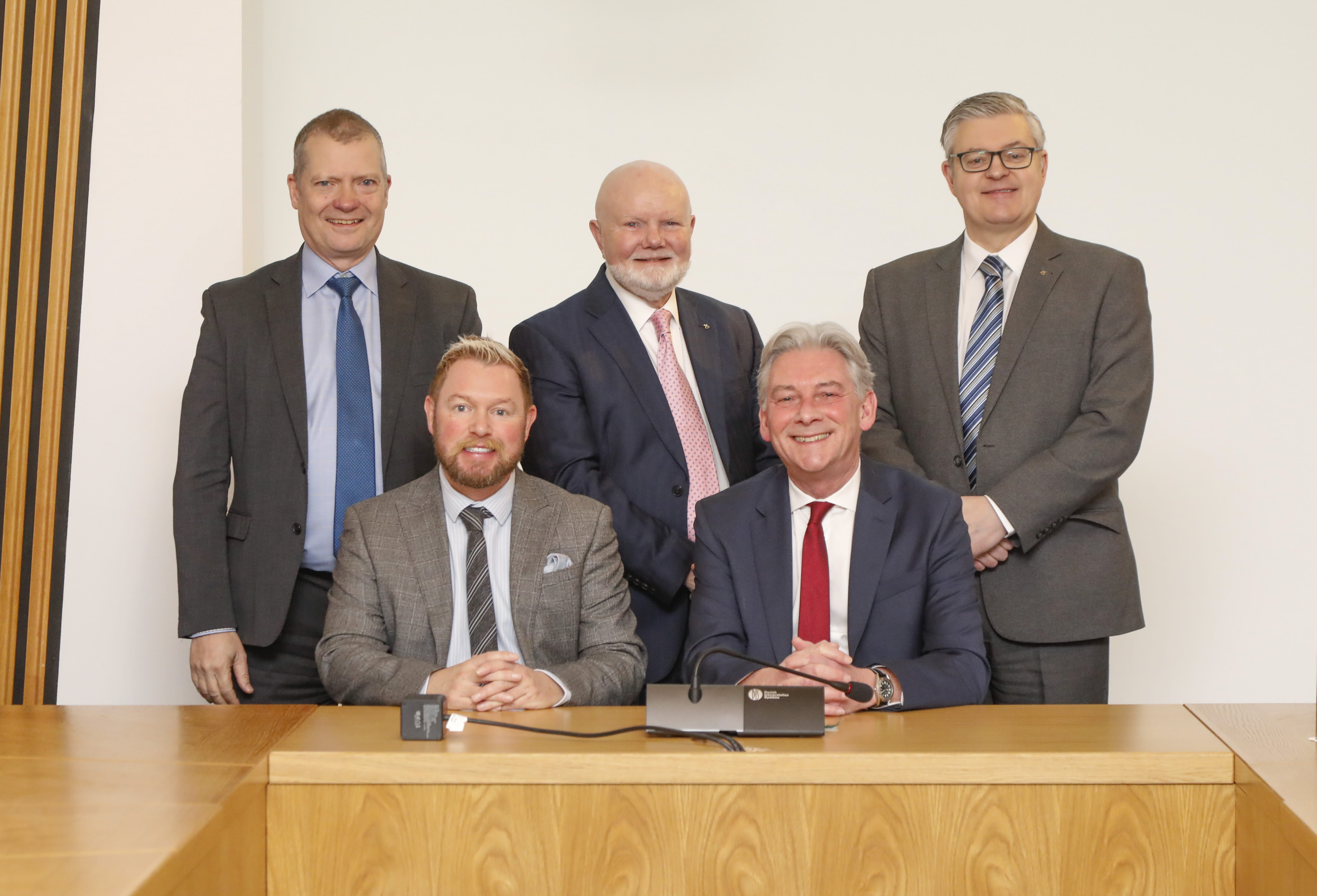
Introduction
This annual report covers the work of the Public Audit Committee (the Committee) between 13 May 2024 to 12 May 2025.
The Committee’s work is focused on the scrutiny of reports produced by the Auditor General for Scotland (the Auditor General). The Auditor General is responsible for publicly reporting on the expenditure and performance of directorates of the Scottish Government and most other public spending bodies (with the exception of local authorities).
The total budget for the Scottish Government and its agencies in 2024/25 was set at £59.7 billion.i
The Committee, through its scrutiny of the Auditor General’s reports, considers how this money is spent and the outcomes that have been achieved, holding to account those who are charged with spending public finances.
Membership of the Committee has changed during the reporting period, the changes are set out below—
Willie Coffey MSP (from 17 June 2021 – 17 June 2024)
Fulton McGregor MSP (from 18 June 2024 – 11 September 2024)
James Dornan MSP (from 11 September 2024 – 7 January 2025)
Stuart McMillan MSP (from 7 January 2025 to present)
Jamie Greene MSP (Con) (from 8 February 2024 – 3 April 2025)
Jamie Greene MSP (Ind) (from 3 April 2025 – 4 April 2025)
Jamie Greene MSP (LD) (from 4 April 2025 – present)
Meetings
The Committee met thirty-one times in the Parliamentary year. These meetings were held in both public and in private. Three meetings were held completely in private to discuss the Committee’s work programme and to have private informal briefings.
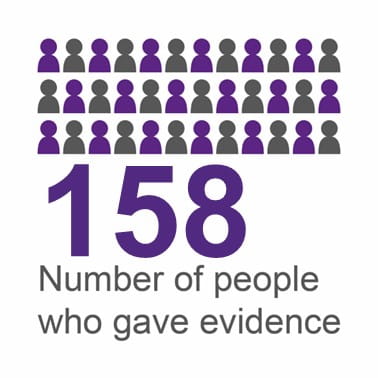
Committee work
During the reporting period, the Committee scrutinised thirteen reports published by the Auditor General. Five of these were “section 22 reports” which set out issues of concern or interest, highlighted in relation to the audit of accounts of individual public bodies.
A further five reports considered by the Committee were “section 23 reports”, which examine the economy, efficiency and effectiveness of the public sector.
Two briefings published by the Auditor General were also considered by the Committee during the reporting period. These shorter reports pull together existing information to summarise key issues and future considerations across a range of topics.
The Committee also scrutinised the National Audit Office’s report on the administration of Scottish income tax 2023/24 and the Auditor General’s associated assurance report.
Audit Scotland also published The National Fraud Initiative in Scotland 2024.
A full list of reports and briefings considered by the Committee during the reporting year is as follows:
Section 22 reports
The 2022/23 audit of the Scottish Prison Service
The 2023/24 audit of Ferguson Marine Port Glasgow (Holdings) Limited
The 2023/24 audit of the Scottish Government Consolidated Accounts
The 2022/23 audit of the Water Industry Commission in Scotland
The 2023/24 audit of the Water Industry Commission for Scotland
Section 23 reports
Alcohol and drug services
Tackling digital exclusion
NHS in Scotland 2023
NHS in Scotland 2024: Finance and performance
Sustainable transport: Reducing car use
Briefings
Additional support for learning
Scotland’s colleges 2024
Other
Comptroller and Auditor General (C&AG) National Audit Office report on the Administration of Scottish income tax 2023/24
Auditor General for Scotland’s assurance report on the C&AG’s Administration of Scottish income tax 2023/24 report.
The National Fraud Initiative in Scotland 2024
The Committee took oral evidence from the Auditor General and Audit Scotland on all of these reports. The Committee would like to express its thanks to the Auditor General and to the audit teams for their work throughout the year.
The 2022/23 audit of the Scottish Prison Service
The Committee published a report on its scrutiny of the 2022/23 audit of the Scottish Prison Service on 10 June 2024. In its report, the Committee made recommendations relating to the delivery of the Scottish Courts Custody Prisoner Escorting Service, in particular, to address how failures in its delivery were impacting on the human rights of prisoners and their ability to access healthcare when required. After consideration of the Scottish Government’s response to its report, the Committee wrote to the Scottish Government on 23 September 2024 to request a six month progress report on the implementation of some of the report’s recommendations, in line with the Scottish Public Finance Manual (SPFM). The Committee considered the progress report at its meeting on 2 May 2025 and agreed to seek further written information from stakeholders.
The 2023/24 audit of Ferguson Marine Port Glasgow (Holdings) Limited
The Committee has previously scrutinised the Auditor General’s reports on New vessels for the Clyde and Hebrides: Arrangements to deliver vessels 801 and 802 and the 2021/22 audit of Ferguson Marine Port Glasgow (Holdings) Limited (FMPG) and published its own report on New vessels for the Clyde and Hebrides on 23 March 2023. The Auditor General published a further section 22 report on the 2023/24 audit of FMPG on 17 December 2024.
The 2023/24 report highlighted concerns around FMPG’s ability to continue as a going concern and its long-term financial sustainability. The report also highlighted that during the reporting period three exit packages were paid to FMPG employees, each above the £95,000 threshold set out in the SPFM. The Committee took evidence from the Auditor General and Audit Scotland on 16 January 2025 and from FMPG and the Scottish Government on 5 February 2025.
The Committee plans to revisit the shipyard in early June 2025 to meet management and the unions and to receive an update on progress of the Glen Rosa and the shipyard’s future plans. The Committee also intends to publish a report over the coming weeks, setting out its conclusions and recommendations following its scrutiny of the AGS report.
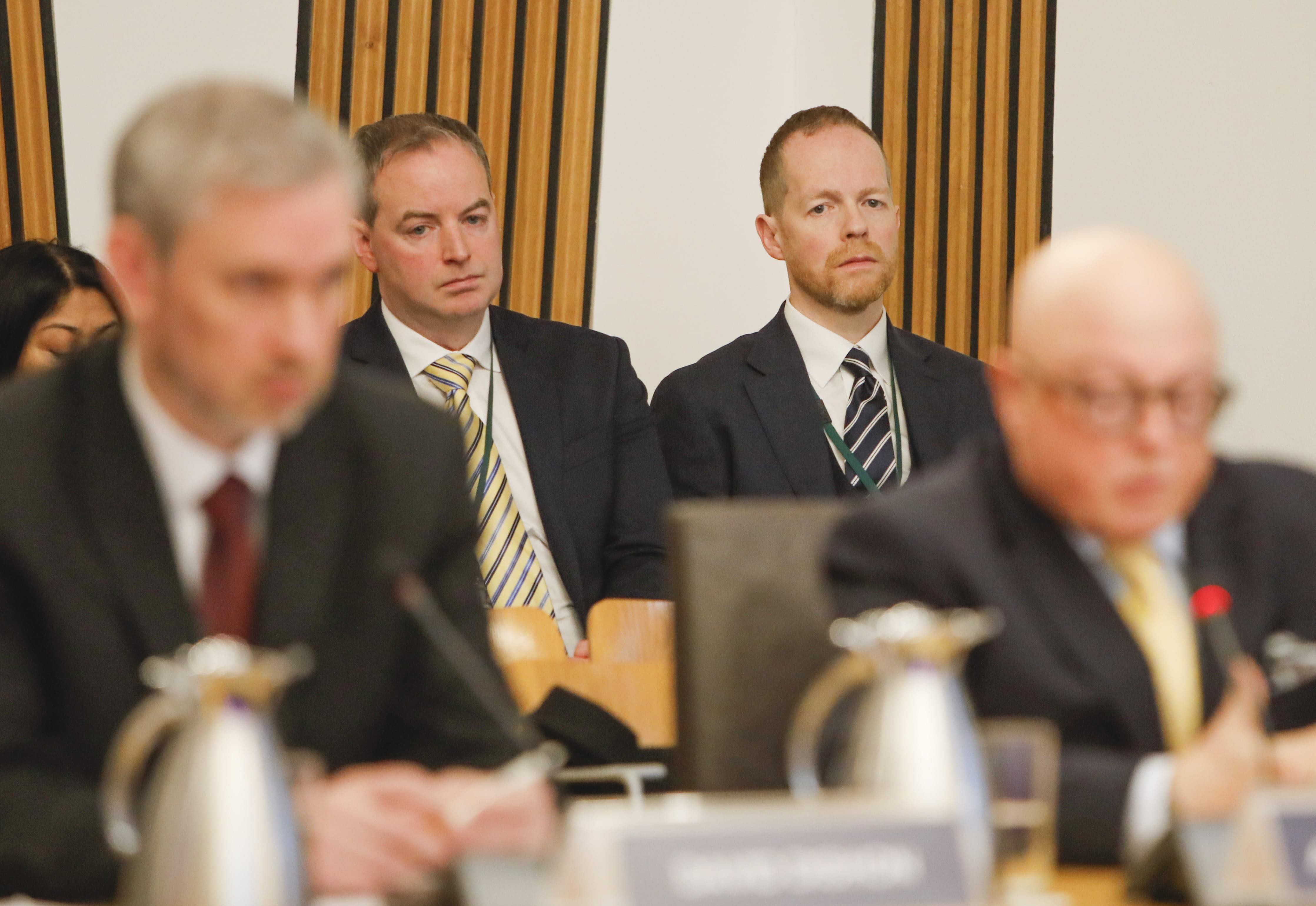
The 2022/23 and 2023/24 audits of the Water Industry Commission in Scotland
The Committee continued its scrutiny of the 2022/23 audit of the Water Industry Commission for Scotland (WICS), taking evidence from WICS and the Scottish Government on 19 September 2024. The 2022/23 audit report had highlighted that governance, financial and cultural issues within the organisation “fell far short of what is expected of a public body”.i
On 10 December 2024 the Auditor General published a further section 22 report, the 2023/24 audit of the WICS, which again highlighted issues with non-compliant expenditure and considered the arrangements for the financial settlement of the former Chief Executive of WICS.
The Committee published a report on its scrutiny of both audit reports on 16 May 2025 and plans to hold a Parliamentary debate on its report in June 2025.
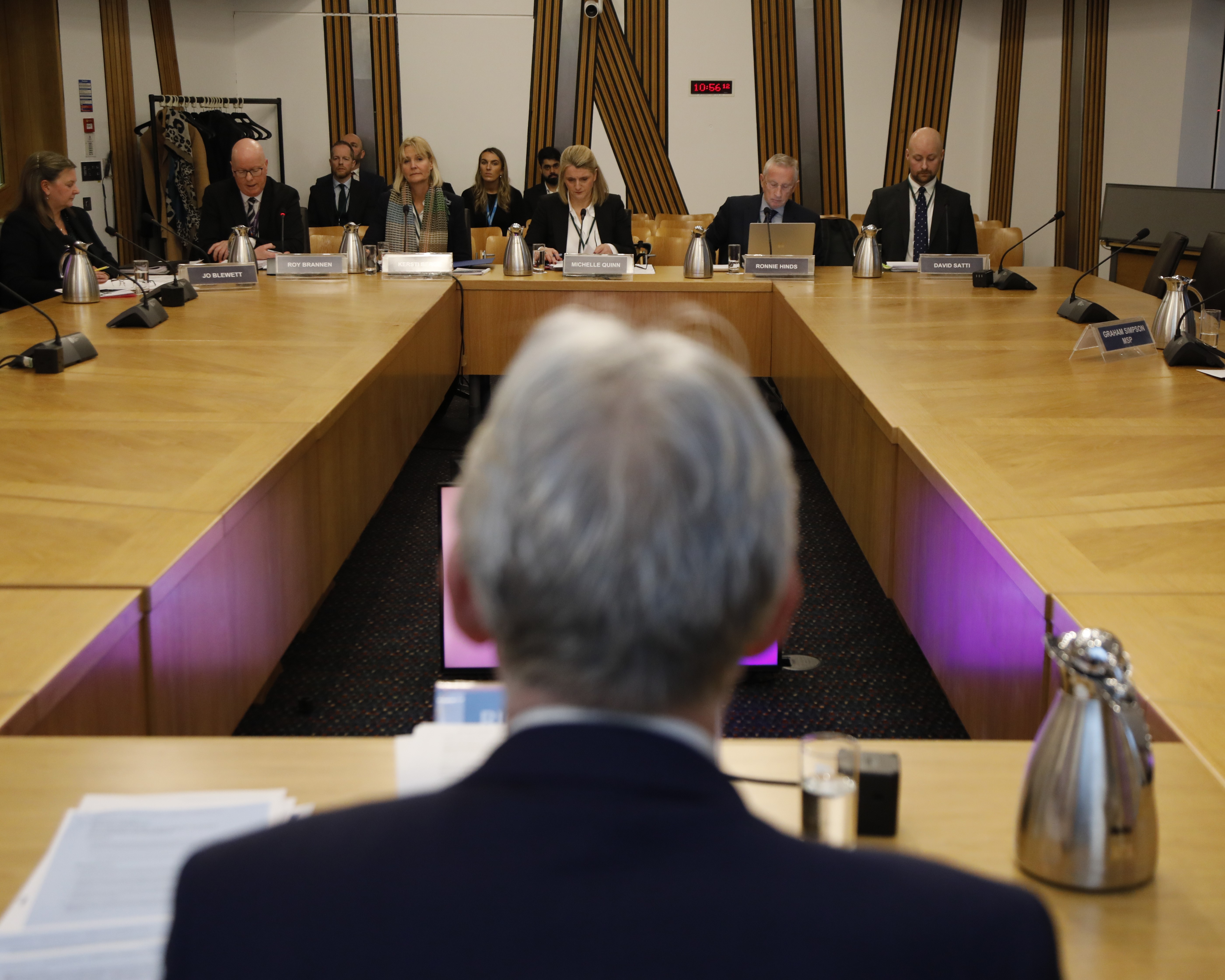
The 2023/24 audit of the Scottish Government Consolidated Accounts
On 10 October 2024, the Auditor General published his annual section 22 report on the 2023/24 audit of the Scottish Government Consolidated Accounts, highlighting the Scottish Government’s response to emerging financial pressures and the urgent need to reform public services. The report also highlighted increased costs of completing the MV Glen Sannox and MV Glen Rosa as well as the need to improve the quality and consistency of sponsorship arrangements for public bodies.
As part of its scrutiny of the report, and linked to its scrutiny of the 2023/24 audit of FMPG, the Committee took evidence from the Scottish Government’s Strategic Commercial Assets Division (SCAD) on the Scottish Government’s financial interventions into private companies and the Business Investment Framework which sets out the overarching principles, the accountable officer tests and key considerations which should be taken into account in any appraisal of proposed business support. The Committee also scrutinised the Scottish Government’s review of the transparency of its portfolio of commercial assets managed by SCAD and will continue its scrutiny in this area in the next reporting year.
Alcohol and drug services
The report, jointly published by the Auditor General and the Accounts Commission on 31 October 2024, stated that deaths from alcohol and drug use remain high compared with other parts of the UK and Europe, despite increased investment and improved leadership.
The Committee took evidence from the Auditor General, the Accounts Commission and Audit Scotland on 21 November, followed by evidence from the Scottish Government and Public Health Scotland on 19 December 2024. The Committee welcomed the progress that had been made to date and noted that the Scottish Government was still to fully implement several key actions. The Committee wrote to the Criminal Justice, Health, Social Care and Sport and Social Justice and Social Security Committees to highlight key issues arising from its scrutiny to help inform their future work.
Tackling digital exclusion
The joint Auditor General and Accounts Commission report highlighted how digital exclusion affects those who can’t afford a suitable device, internet, data package or are able to use online services or access support that is often exclusively digital. The report stated that the pace to improve digital exclusion at a national level has slowed since the Covid pandemic, although some local authorities already have additional services in place to try to combat digital exclusion.
The report was published on 22 August 2024 and the Committee took evidence from the Auditor General, the Accounts Commission and Audit Scotland on 5 September 2025. The Committee took further evidence from the Scottish Government and the Convention of Scottish Local Authorities (COSLA) on 31 October 2024. The Committee closed its scrutiny of the report on 16 January 2025 and in doing so, wrote to the Equalities, Human Rights and Civil Justice, the Social Justice and Social Security and Local Government, Housing and Planning Committees to highlight key issues arising from its scrutiny to help inform their future work.
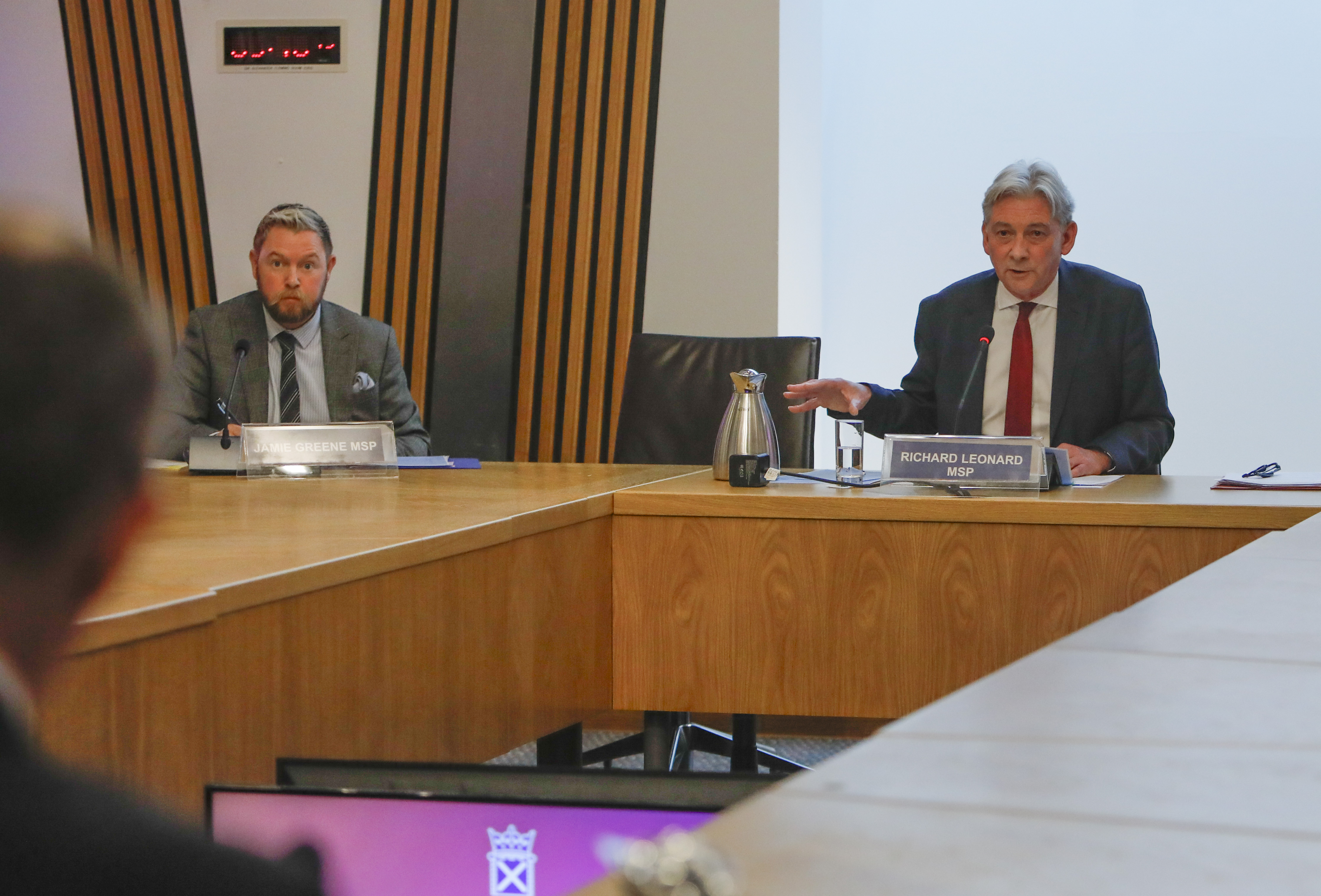
NHS in Scotland 2024: Finance and performance
The report was published on 3 December 2024 and stated that while NHS funding increased again in 2023/24, this increase was largely used to cover pay commitments and inflation. The report also stated that despite increased funding and staffing, the NHS in Scotland is seeing fewer patients since than before the Covid pandemic and that commitments to reduce, waiting lists and waiting times have not been met.
The report stated that there needs to be an increased and ongoing focus on preventative health and improving people’s health to reduce pressure on the NHS. A clear delivery plan for this is required as, without it, the NHS is unlikely to be able to meet growing demand. The Committee took evidence on 12 December 2024 from the Auditor General and Audit Scotland and from the Scottish Government on 29 January 2025.
The Committee wrote to the Health, Social Care and Sport Committee on 3 April 2025 to highlight key issues arising from its scrutiny. This included the sufficiency of the financial support provided tor NHS Boards, the reliance on non-recurring savings, staffing, estate management and operational performance and challenges.
Sustainable transport: Reducing car use
The joint Auditor General and Accounts Commission report stated that Scottish Government and council spending on measures to reduce car use was complex, fragmented and lacked transparency. It went on to highlight that one-year funding makes it difficult for bodies to plan and deliver longer term projects and that, while councils have an important role in reducing car use, some prioritise contributing to the target more than others and they face different challenges in doing so. The report also highlighted that the Scottish Government spends significant amounts of money on interventions that could reduce car use such as concessionary bus travel and active travel, but it has not considered how to target funding to have the most impact.
The Committee took evidence from the Cabinet Secretary for Transport on 23 April 2025, alongside Transport Scotland and COSLA. During the evidence session, the Cabinet Secretary confirmed that current targets will be reviewed. The Committee will continue its scrutiny in this area in the next reporting year.
Administration of Scottish income tax 2023/24
During the Parliamentary year, the Committee continued its annual scrutiny of the on the National Audit Office’s report on HM Revenue and Customs (HMRC) administration of Scottish income tax, and the Auditor General’s accompanying assurance report. The Auditor General’s assurance report, published on 17 January 2025, stated that, whilst income tax revenues continue to rise, the impact on the Scottish budget is significantly reduced by relatively slower economic growth in Scotland, compared with the rest of the UK.
The Committee took evidence on 19 February 2025 from the Auditor General for Scotland and the Comptroller and Auditor General from the National Audit Office. Thereafter, in March 2025, the Committee held a private informal briefing with Scottish Government and HMRC officials to scrutinise both reports and their findings in further detail. The Committee found the informal briefing to be helpful and informative.
The Committee held an evidence session with the Scottish Government and HMRC on 26 March 2025 in which it explored issues around Scottish tax payers, the impact of tax divergence including taxpayer behaviour, the impact on budgets and on economic performance and compliance risk.
Additional support for Learning
The Auditor General and Accounts Commission published the report on 27 February 2025. The report stated that forty percent of all pupils receive additional support for learning (ASL), with the proportion in Scotland’s most deprived areas almost double that in the least deprived areas. ASL numbers have increased significantly since the Education (Additional Support for Learning) (Scotland) Act 2004 was introduced and the report sets out that the reasons for this growth are complex. They include the inclusive approach to ASL, changes to data recording and an increasing awareness of needs. The report highlights that current attainment measures show a wide gap in outcomes for pupils receiving ASL but it is not possible to determine the scale, complexity and nature of support needs due to inconsistencies and gaps in data recording.
The Committee took evidence from the Auditor General, Accounts Commission and Audit Scotland on the 19 March 2025, followed by an evidence session with the Scottish Government and COSLA on 7 May 2025. The Committee agreed to continue its scrutiny and write to the Scottish Government and COSLA for further information.
Post legislative scrutiny
The Committee does not have the same powers as other Parliamentary committees in relation to carrying out post-legislative scrutiny and therefore did not undertake any of this work.
Equality and engagement
The Committee continues to consider the importance of equalities in its work. For example, in scrutinising the report on Tackling digital exclusion, it examined the barriers faced by people who cannot afford digital devices or internet access or who lack the necessary digital skills to use public and local services that are only delivered online. The Committee considered how this impacted on communities in more deprived areas and on the elderly in trying to access these services.
The Alcohol and drug services report highlighted that more people in Scotland, particularly in deprived areas, are dying from alcohol and drug misuse than any other part of Europe. The Committee looked at the preventative action being taken by the Scottish Government and Integration Authorities as, while there has been progress in tackling drug use, the Committee found that further action is needed to improve alcohol services. The Committee wrote to the Scottish Government raising its concerns about regional disparities for those seeking access to services and asked what measures were being taken to better understand and address the issues identified during evidence.
The report on Additional support for learning highlighted that forty percent of pupils receive additional support for learning with the proportion in Scotland’s most deprived areas almost double that in the least deprived areas. The Committee explored the reasons for this with the Scottish Government.
In its response to the Standards, Procedures and Public Appointments Committee inquiry into committee effectiveness, the Committee responded to say that it supports an end to single-sex committees and would welcome a better gender balance in the Parliament’s Committees. The Committee also examined the gender balance within the Scottish Government’s Strategic Commercial Assets Division’s noting that the organisational chart appeared to show a predominantly male team. The Scottish Government confirmed that, of the five staff reporting to the Deputy Director, three were women.
The Committee intends to hold a Parliamentary debate on its 2022/23 and 2023/24 report on the Water Industry Commission for Scotland in June 2025.
The Committee regularly posts on X (formerly known as Twitter), where it has just over 2700 followers, and on Facebook to share information on its work. The Committee will continue to seek ways to promote its work through social media.